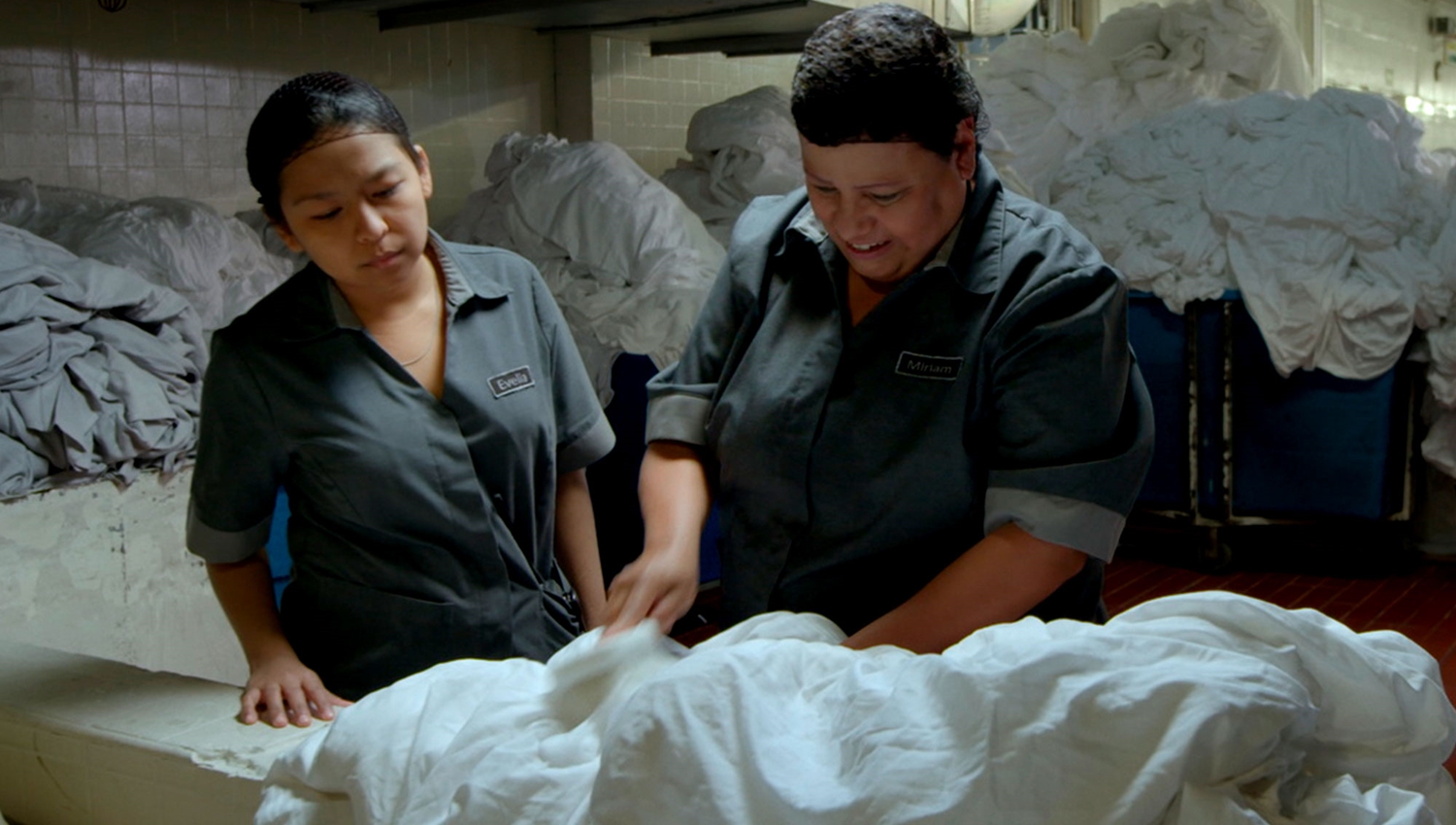
The Chambermaid
Dustin Chase
You would think Mexico would pick something as far away from “Roma” as they could find for this year’s International Film submission to the Academy Awards. Cinematically The Chambermaid is the polar opposite; stagnant camera work, one single location, modern day setting and in color. Yet actress Lila Avilés’ directorial debut, like “Roma”, is about a service worker in Mexico. It’s sterile filmmaking, setting up a still camera where actress Gabriela Cartol comes into frame, makes an action, and then leaves. Avilés is exploring the mundane while her choices in narrative are social commentary on specifically the unappreciated maid, but broadly on the service industry in general. There is basic editing, no score and a performance that, for long spans of running time, is speechless. Cartol does a lot with her screen time and whenever she finds something unusual while cleaning a room, she lights up.
The promise of working on the prestigious 42nd floor of a swanky Mexico City hotel and the valuable red dress left in lost and found, are two factors keeping Eve (Cartol) going. She arrives at work before the sun comes up, and leaves well after it goes down, if at all. Her days are spent mostly alone, pilfering through guests valuables and trash while cleaning rooms with the pristine touch that’s gotten her work on higher floors. She often takes breaks to phone her four-year-old son and her friend who takes care of him. She eats her lunch alone in the cafeteria despite others who are seemingly drawn to her kind nature.
It’s sterile filmmaking, setting up a still camera where actress Gabriela Cartol comes into frame, makes an action, and then leaves.
“The Chambermaid” feels like a Ken Loach film without the devastating social insight. It’s nearly devoid of drama as Eve’s mannerisms mean she must take everything in stride. Avilés never takes us off the hotel property; the audience is confined to Eve’s custodial duties entirely. A film about routine is difficult, “Roma” was less about routine and more about the extension of family. Where Cuaron and his team are master storytellers behind the camera, there is nothing stimulating or award worthy about the filmmaking in “The Chambermaid”. It’s closer to a reenactment than narrative feature. What little information Avilés’s script gives us about Eve comes through her brief interactions with others, especially the obnoxious and abrasive Minitoy (Sánchez) whose point-blank questions are answered with simple yes’s or no’s.
Avilés’ film helps make sense of why some people didn’t understand, get, or appreciate “Roma”. When the technical elements of storytelling are lost or unappreciated, and a viewer is only interested in the most basic plot lines, I can see why either film would be “boring”. A great film can do both, tell a story with innovative cinematic appeal and engage the viewer in character-based consequences and outcomes. “The Chambermaid” keeps the viewer moderately engaged but Eve’s routine becomes our own. The social commentary being what it is on the heels of “Roma”, only in modern day Mexico, struggles to find enough for the lead character to do and come full circle. After hitting it big at the Oscars last year, Mexico will have to sit this one out.
Final Thought
Inevitable comparisons to Roma will be unfair, but Mexico put The Chambermaid in that position by selecting it as their Oscar submission.
